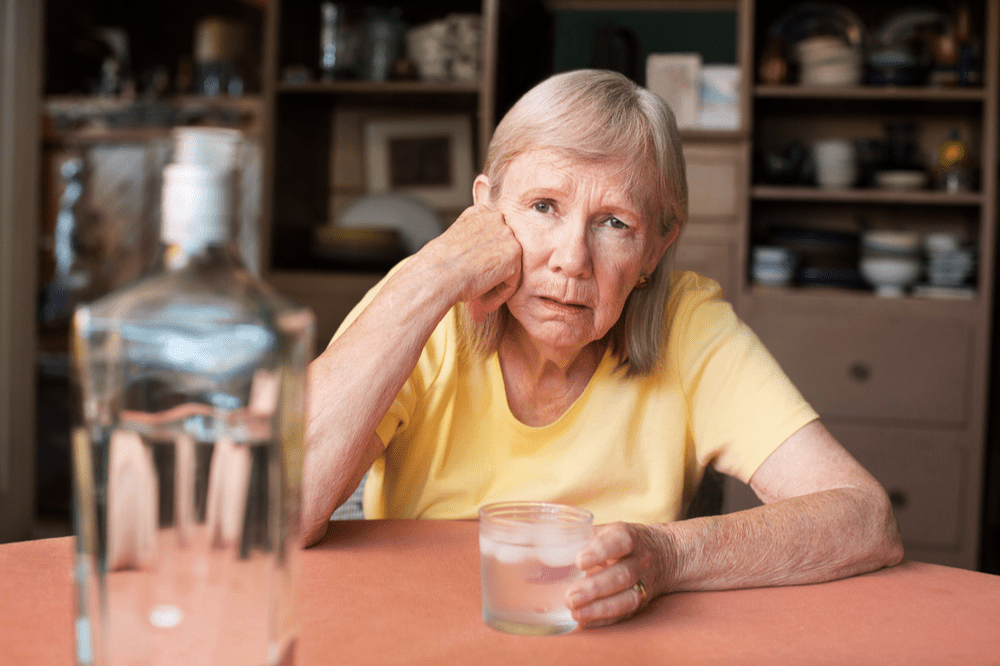Alcohol abuse may look different in a middle-aged or senior adult than it does in a teenager.
There are physical and psychological signs, and some may be mistaken for symptoms related to aging. Here are some things to look for:
- Drinking frequently or in large amounts is one of the most obvious signs of a drinking problem. Unfortunately, as people age, their bodies handle alcohol less efficiently, so the definition of “too much” begins to change. The American Geriatrics Society recommends no more than one drink a day for older men and less for older women. They define binge drinking as four drinks for men and three for women.
- Their moods are unpredictable and extremely variable.
- They appear to become nervous or agitated if they haven’t had a drink for a while.
- They choose to drink over other activities they once enjoyed.
- Relaxing or celebrating seems always to involve alcohol.
- They appear to be hiding the amount of their drinking or drinking alone more often.
- They’ve mentioned cutting down or quitting, but they haven’t done it.
- They make excuses for how much they drink or make jokes about it.
- They’re having increasing problems with memory.
- There are changes in their appearance. They may have a red face, a bloated abdomen, or bloodshot eyes.
- They do risky and unsafe things while under the influence of alcohol.
Having the Conversation
Talking to your parent about an alcohol issue can feel scary, but it’s a loving thing to do. It’s wise to prepare in advance and think through what you want to say and how you want to say it.
It’s generally more effective, for example, to phrase things in terms of what you’ve observed or experienced versus using language that might feel accusatory. You want to communicate concern and love.
It can also be helpful to ask open-ended questions. Your objective isn’t just to speak your mind and share your concerns about alcohol abuse but to have a real conversation that leads to understanding each other better. An article in U.S. News and World Report suggests asking a parent to share goals related to things like health, relationships, finances and independence and asking them if they think that drinking is helping them reach those goals or making it harder.
You’ll probably want to talk about the negative health effects of drinking and about how they increase over time. The National Institute on Aging notes that alcohol can contribute to brain and liver damage, immune system disorders, and various types of cancer. It can lead to increased injuries, like falls and car accidents. It can also worsen health conditions like diabetes, ulcers, high blood pressure, memory loss, mood disorders, osteoporosis and stroke.
Alcohol use can also make it harder for doctors to diagnose and treat certain medical issues. It can mask signs of a heart attack, for instance, or cause confusion and memory loss that may mimic Alzheimer’s disease.
There is Hope at Any Age
The good news is that older adults often respond very well to alcohol treatment. A study published in the American Journal of Geriatric Psychiatry found that older adults attended therapy sessions and took prescribed medications more regularly than younger adults did. This translated to better outcomes with less relapse.
We know it’s not easy to watch someone you love develop a problem with alcohol or to talk to them about it. We want to support you in the process. Call us today at 844.675.1628, and let’s talk about how we can help. A new chapter of life can start now.

